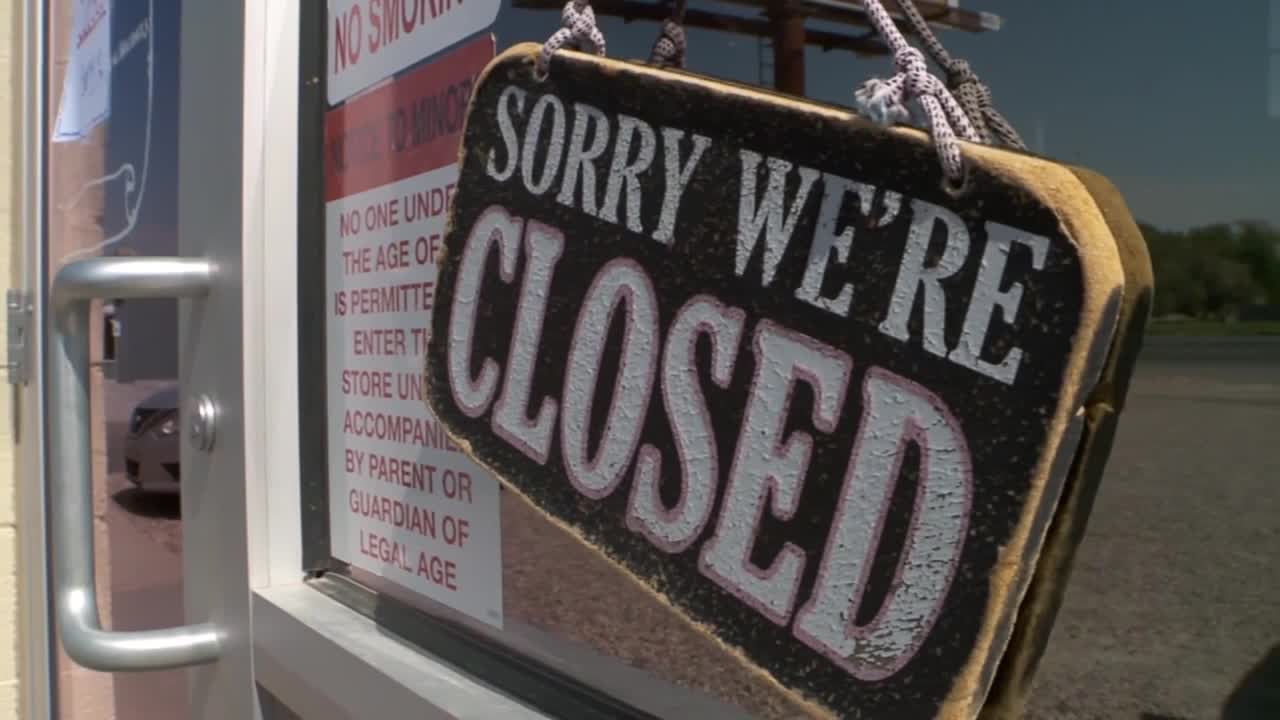SALT LAKE CITY — People do all sorts of things to help their small towns. They pick up trash, work as crossing guards or join the volunteer fire department.
In Utah, they run liquor stores — even if it means losing money.
“We haven't been profitable,” said Steve Tanner, who on Thursday once again received permission to open the liquor store in Kamas. “We'd like to break even, and with the changes, I just don't see that that's a possibility.
“But we're willing to do it as a service to the community.”
Rural liquor stores began closing earlier this year after changes by the Utah Alcoholic Beverage Services Commission. The biggest change was to remove the contractor-operated liquor stores from the DABS payment processing system.
That left the so-called package agencies found in many of Utah’s small towns to pay for customer credit card transactions. The package agencies are not allowed to raise prices to compensate.
Closing time for some rural Utah liquor stores as state pours new rules:
Tanner ran the Kamas store for 11 years. He let his contract with DABS lapse this year because he didn’t believe he could make a profit.
“Apparently, there was no other applications, and we've decided to try to operate it,” Tanner told DABS commissioners at their meeting Thursday.
“As an economist,” said Juliette Tennert, a DABS commissioner who works at the Kem C. Gardner Policy Institute, “it's curious to me that a business would enter into a contract where they'd end up in a net negative.”
Michael Wyrick operated the liquor store in Fillmore for 10 years. His mother, LeeAnne Maxfield, operated Delta’s liquor store for 30 years. When mother and son closed their shops earlier this year, it left Millard County imbibers with nowhere to buy bottles of wine or spirits, although beer is still available in grocery and convenience stores.
Wyrick was back in front of the commission on Thursday and received approval to reopen his mom’s store in Delta.
“But in talking with the community and the [liquor license holders], I’m going to do it without accepting debit cards,” Wyrick said.
Banning debit cards will save Wyrick $25,000 a year, he estimates, and earn a profit.
It will also give bars and restaurants in Millard County, who are required to buy their bottles from the state, a nearby supplier.
Earlier this month, the owner of Curley’s Lounge in Delta told FOX 13 News she was driving 50 miles to Nephi to purchase product.
In 2021, Maxfield and a group of package agencies sued the state. The plaintiffs allege Utah misclassified the package agents as independent contractors rather than state employees, potentially costing each package agent tens of thousands of dollars in lost wages.
Utah has denied those claims and the lawsuit is pending.
In January, Maxfield and the other package agents who wanted to renew their contracts were told there would be new terms.
Erika Larsen, the attorney representing Maxfield and the other plaintiffs in the employment classification lawsuit, told FOX 13 News this month that she believes the lawsuit and the new package agency terms are related.
“Our contention is it is a direct and clear retaliation,” Larsen said.
Larsen said package agencies had previously been required to use the state to process credit and debit cards, and that had also been evidence in the lawsuit of how the package agencies were treated like employees.
But rather than take away the card processing and find another way for the package agencies to stay in business, Larsen said, DABS seems to want to change its relationship with the package agencies to aid the state’s defense in court.
“Because this lawsuit has been filed, [DABS administrators] have been unwilling to work with any of the …package agents on this,” Larsen said.
A DABS spokeswoman, in early July, said changes to credit and debit processing will give “autonomy” to the merchants.
As of Thursday, DABS is still looking for merchants to take over the stores in Fillmore, Milford and Castle Dale.
Below is the full DABS statement:
"The Department of Alcoholic Beverage Services and the ABS Commission recently completed the application and selection process for package agency contracts. Package agencies are retail liquor outlets that are managed by private operators who are contracted by the state of Utah to run the business. Each contract is signed on a three-year basis.
Contract Change
Earlier this year, the DABS informed existing package agents that the new contract period will begin with changes to the agreement. Previously, the DABS required PAs to use point of sale (POS) systems that were assigned by the department. Now, PAs have autonomy over this critical piece of their business by researching and choosing their POS systems.
New and Closing Package Agencies
This year, package agency locations in Utah are expanding from 35 to a total of 38 stores. New locations added are in Veyo, St. George, and Green River. There are three locations that are currently moving through the application and contract approval process and will be open in the coming weeks; those include Kanab, Helper, and Kamas. There are currently four locations where the DABS is seeking interest for new package agency operators; those include Castle Dale, Milford, Delta, and Fillmore. Castle Dale has been without a PA for nearly two years, a Milford operator was awarded a contract this year but recently opted not to proceed with the opportunity, and Delta and Fillmore have been operating under a single manager for several years who has chosen not to pursue a new PA contract.




